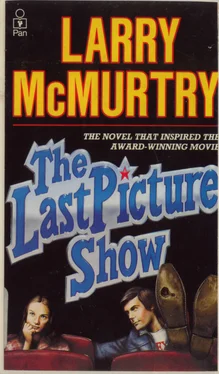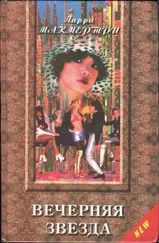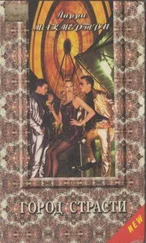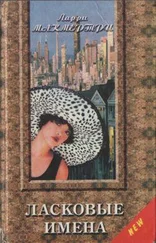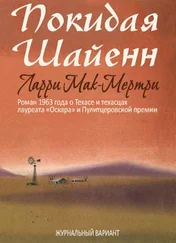Ларри Макмертри - The Last Picture Show
Здесь есть возможность читать онлайн «Ларри Макмертри - The Last Picture Show» весь текст электронной книги совершенно бесплатно (целиком полную версию без сокращений). В некоторых случаях можно слушать аудио, скачать через торрент в формате fb2 и присутствует краткое содержание. Год выпуска: 101, Жанр: Старинная литература, на английском языке. Описание произведения, (предисловие) а так же отзывы посетителей доступны на портале библиотеки ЛибКат.
- Название:The Last Picture Show
- Автор:
- Жанр:
- Год:101
- ISBN:нет данных
- Рейтинг книги:5 / 5. Голосов: 1
-
Избранное:Добавить в избранное
- Отзывы:
-
Ваша оценка:
- 100
- 1
- 2
- 3
- 4
- 5
The Last Picture Show: краткое содержание, описание и аннотация
Предлагаем к чтению аннотацию, описание, краткое содержание или предисловие (зависит от того, что написал сам автор книги «The Last Picture Show»). Если вы не нашли необходимую информацию о книге — напишите в комментариях, мы постараемся отыскать её.
The Last Picture Show — читать онлайн бесплатно полную книгу (весь текст) целиком
Ниже представлен текст книги, разбитый по страницам. Система сохранения места последней прочитанной страницы, позволяет с удобством читать онлайн бесплатно книгу «The Last Picture Show», без необходимости каждый раз заново искать на чём Вы остановились. Поставьте закладку, и сможете в любой момент перейти на страницу, на которой закончили чтение.
Интервал:
Закладка:
He hurriedly got up and put on his clothes, his head aching. While he was tieing his shoes he suddenly had to vomit, and barely made it past the blue curtain into the street. When he had finished vomiting, and was kneeling in the white dust waiting for his strength to come back he heard a slow clop-clop and looked up to see a strange wagon rounding the corner into his part of the street. It was a water wagon, drawn by a decrepit brown mule and driven by an old man. The wagon was entirely filled by a large rubber water tank wrapped in ragged canvas; as the wagon moved the water sloshed out of the open tank and dripped down the sides of the wagon into the white dust. The old man wore a straw hat so old that it had turned brown. His grizzled whiskers were as white as Sam the Lion's hair. As he stopped the mule, three or four whores stepped out of their cribs with water pitchers in their hands. One passed right by Sonny, a heavy woman with a relaxed face and large white breasts that almost spilled out of her green robe. The whores were barefooted and seemed much happier than they had seemed the night before. They chattered like high school girls and came lightly to the wagon to get their water. The old man spoke to them cheerfully, and when the first group had filled their pitchers he popped the mule lightly with the rein and proceeded up the street, the slow clop-clop of the mule's feet very loud in the still morning. When he passed where Sonny was kneeling the old man nodded to him kindly and gestured with a tin dipper he had in his hand. Sonny gratefully took a dipper of water from him, using it to wash the sour taste out of his mouth. The old man smiled at him sympathetically and said something in a philosophic tone, something which Sonny took to mean that life was a matter of ups and downs. He stayed where he was and watched the wagon until it rounded the next corner. As it moved slowly up the street the whores of Maiamoros came out of their cribs, some of them combing their black hair, some with white bosoms uncovered, all with brown pitchers in their hands and coins for the old waterman.
Sonny found Duane asleep in the front seat of the pickup, his legs sticking out the window. Three little boys were playing in the road, trying to lead a dusty white goat across into a pasture of scraggly mesquite. The goat apparently wanted to go into the Cabaret ZeeZee. A depressed looking spotted dog followed behind the boys and occasionally yapped discouragedly at the goat.
Duane was too bleary and sick to do more than grunt. His hair was plastered to his temples with sweat. "You drive," he said.
By some miracle Sonny managed to wind his way through Matamoros to the Rio Grande—in daylight the water in the river was green. The boys stood groggily under the custom's shed for a few minutes, wondering why in the world they had been so foolish as to come all the way to Mexico. Thalia seemed an impossible distance away.
"I don't know if I can make it," Sonny said. "How much money we got?"
They found, to their dismay, that their money had somehow evaporated. They had four dollars between them. There was the money that Sam and Genevieve had given them, hidden in the seat springs, but they had not planned to use that.
"I guess we can pay them back in a week or two," Sonny said. "We'll have to use it."
When the customs men were through the boys got back in the pickup and drove slowly out of Brownsville, along the Valley highway. Heat waves shimmered above the green cabbage fields. Despite the sun and heat Duane soon went to sleep again and slept heavily, wallowing in his own sweat. Sonny drove automatically; he was depressed, but not exactly sleepy, and he paced himself from town to town, not daring to think any farther ahead than the next city limits sign.
Soon the thought of Ruth began to bother him. In retrospect it seemed incredibly foolish that he should drive a thousand miles to go to sleep on a pregnant girl's stomach, when any afternoon he could have a much better time with Ruth. The thought of her slim, familiar body and cool hands suddenly made him very horny and even more depressed with himself. It occurred to him that he might even be diseased, and he stopped in a filling station in Alice to inspect himself. Duane woke up and exhibited similar anxieties. For the rest of the day they stopped and peed every fifty miles, just to be sure they could.
There was money enough for gas, but not much for food, so they managed on Cokes, peanuts, and a couple of candy bars. Evening finally came, coolness with it, and the boys got a second wind. The trip ceased to seem like such a fiasco: after all, they had been to Mexico, visited whorehouses, seen dirty movies. In Thalia it would be regarded as a great adventure, and they could hardly wait to tell about it. The country around Thalia had never looked so good to them as it did when they came back into it, at four in the morning. The dark pastures, the farmhouses, the oil derricks and even the jackrabbits that went dashing across the road in front of them, all seemed comfortable, familiar, private even, part of what was theirs and no one else's. After the strangeness of Matamoros the lights of Thalia were especially reassuring.
Duane was driving when they pulled in. He whipped through the red light and turned toward the café. Genevieve would be glad to see they were safely back.
To their astonishment, the café was dark. No one at all was there. The café had never been closed, not even on Christmas, and the boys were stunned. Inside, one little light behind the counter shone on the aspirin, the coughdrops, the chewing gum, and cheap cigars.
"It ain't a holiday, is it?" Sonny said.
There was nothing to do but go over to the courthouse and wake up Andy Fanner—he would know what had happened.
Andy woke up hard, but they kept at him and he finally got out of the car and rubbed his stubbly jaw, trying to figure out what the boys wanted.
"Oh yeah, you all been gone, ain't you," he said. "Gone to Mexico. You don't know about it. Sam the Lion died yesterday mornin'."
"Died?" Sonny said. After a moment he walked over to the curb in front of the courthouse and sat down. The traffic light blinked red and green over the empty street. Andy came over to the curb too, yawning and rubbing the back of his neck.
"Yep," he said. "Quite a blow. Keeled over on one of the snooker tables. Had a stroke."
Soon it was dawn, a cool, dewy spring dawn that wet the courthouse grass and left a low white mist on the pastures for the sun to burn away. Andy sat on the fender of his Nash and told all about the death and how everybody had taken it, who had cried and who hadn't. "Good thing you all got back today, you'd 'a missed the funeral," he said. "How'd you find Mexico?" Sonny could not have told him; he had lost track of things and just wanted to sit on the curb and watch the traffic light change.
chapter seventeen
Sonny was embarrassed that he didn't have a suit to wear to the funeral—all he had was a pair of slacks and a blue sports coat that was too short at the wrists. No one seemed to notice, though. The graveyard was on a rough, gravelly hill, where the wind was always blowing. Sonny was able to quit being embarrassed because of Mrs. Farrow, who cried all through the graveyard ceremonies. She stood at the edge of the crowd, the wind blowing her long hair, and her cheeks wet; when she walked back to her Cadillac to drive away she was still crying and wiping her eyes with her gloves.
It was because of her crying so much that Sonny learned she had been the woman who watched Sam the Lion piss off the tank dam. That night at the café Sonny asked Genevieve about it and she didn't hold back.
"Sam's gone and Lois never cared who knew," she said. "Everybody knew but Gene. She and Sam carried on for quite a while. Lois was just crazy about him. She would have 'married him, old as he was, but he wouldn't let her leave Gene."
Читать дальшеИнтервал:
Закладка:
Похожие книги на «The Last Picture Show»
Представляем Вашему вниманию похожие книги на «The Last Picture Show» списком для выбора. Мы отобрали схожую по названию и смыслу литературу в надежде предоставить читателям больше вариантов отыскать новые, интересные, ещё непрочитанные произведения.
Обсуждение, отзывы о книге «The Last Picture Show» и просто собственные мнения читателей. Оставьте ваши комментарии, напишите, что Вы думаете о произведении, его смысле или главных героях. Укажите что конкретно понравилось, а что нет, и почему Вы так считаете.
